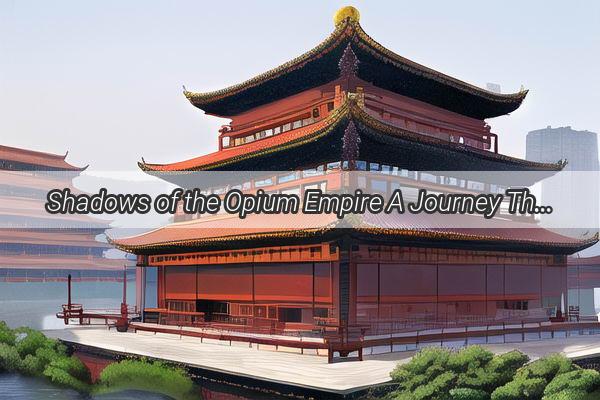Shadows of the Opium Empire A Journey Through Chinas Dark History with Drugs
---
In the annals of human history, China's past with drugs is a tale woven with the threads of power, greed, and tragedy. The story of China's drug history is not just one of addiction and despair but also a complex tapestry of political intrigue, economic exploitation, and cultural transformation. Let's embark on a journey through the shadows of the opium empire to uncover the fascinating and dark chapters of China's past.
The origins of drug use in China can be traced back to ancient times, but it was the arrival of opium from the West in the 19th century that would cast a long and enduring shadow over the nation. The British East India Company, seeking to balance the trade deficit with China, began exporting opium to the Chinese market in the 1830s. The lucrative trade was a result of the British colonial exploitation of Indian opium fields, and it would soon become a source of immense wealth and power for the British Empire.
The introduction of opium into China's society was met with a cocktail of political and social consequences. The opium trade became a source of tension between China and Britain, leading to the First Opium War (1839-1842). The Chinese government, under the rule of the Qing Dynasty, attempted to ban the trade, but the British were determined to protect their lucrative trade routes and interests. The war ended in China's defeat, marking a significant turning point in the nation's history and setting the stage for further Western colonization.
As the opium trade expanded, so too did its devastating effects on Chinese society. The drug's addictive nature led to widespread addiction among the population, particularly among the elite. The resulting economic and social chaos was exacerbated by the corrupt and inefficient Qing government, which failed to address the crisis effectively. The opium addiction crisis was so severe that it became a symbol of China's weakness and decline in the eyes of its own people.
The opium trade also had profound implications for China's political landscape. The defeat in the Opium Wars and the subsequent Treaty of Nanking in 1842 opened the door to the unequal treaties that would dominate China's foreign relations for decades to come. These treaties granted the Western powers unprecedented concessions, including the right to trade opium without restriction and the establishment of extraterritorial rights for their citizens.
As the 20th century dawned, the opium trade continued to cast a long shadow over China. The Chinese Communist Party, which rose to power in the 1940s, was also grappling with the issue of drug addiction. The party's efforts to combat drug use were part of a broader campaign to transform China into a modern, socialist society. The Great Leap Forward and the Cultural Revolution were not only about economic and political reform but also about eradicating the remnants of the old society, including drug addiction.

In the latter half of the 20th century, China faced a new wave of drug challenges. The 1970s and 1980s saw the rise of heroin and cocaine use, brought into the country by the expanding international drug trade. The Chinese government, recognizing the threat to its citizens and society, intensified its efforts to combat drug addiction and trafficking. The establishment of specialized drug enforcement agencies and the implementation of stricter laws marked a significant shift in the nation's approach to drug control.
Today, China remains committed to eradicating drug addiction and combating the global drug trade. The country has implemented a range of policies and initiatives, including community-based rehabilitation programs, international cooperation, and the use of advanced technology to track and intercept drug traffickers.
The story of China's drug history is a cautionary tale of the power of addiction and the long-term impact of colonial exploitation. It is also a story of resilience and determination, as the Chinese people and their government continue to fight the shadows of the opium empire. As we reflect on this past, we are reminded of the importance of education, prevention, and the unwavering commitment to a drug-free society.









